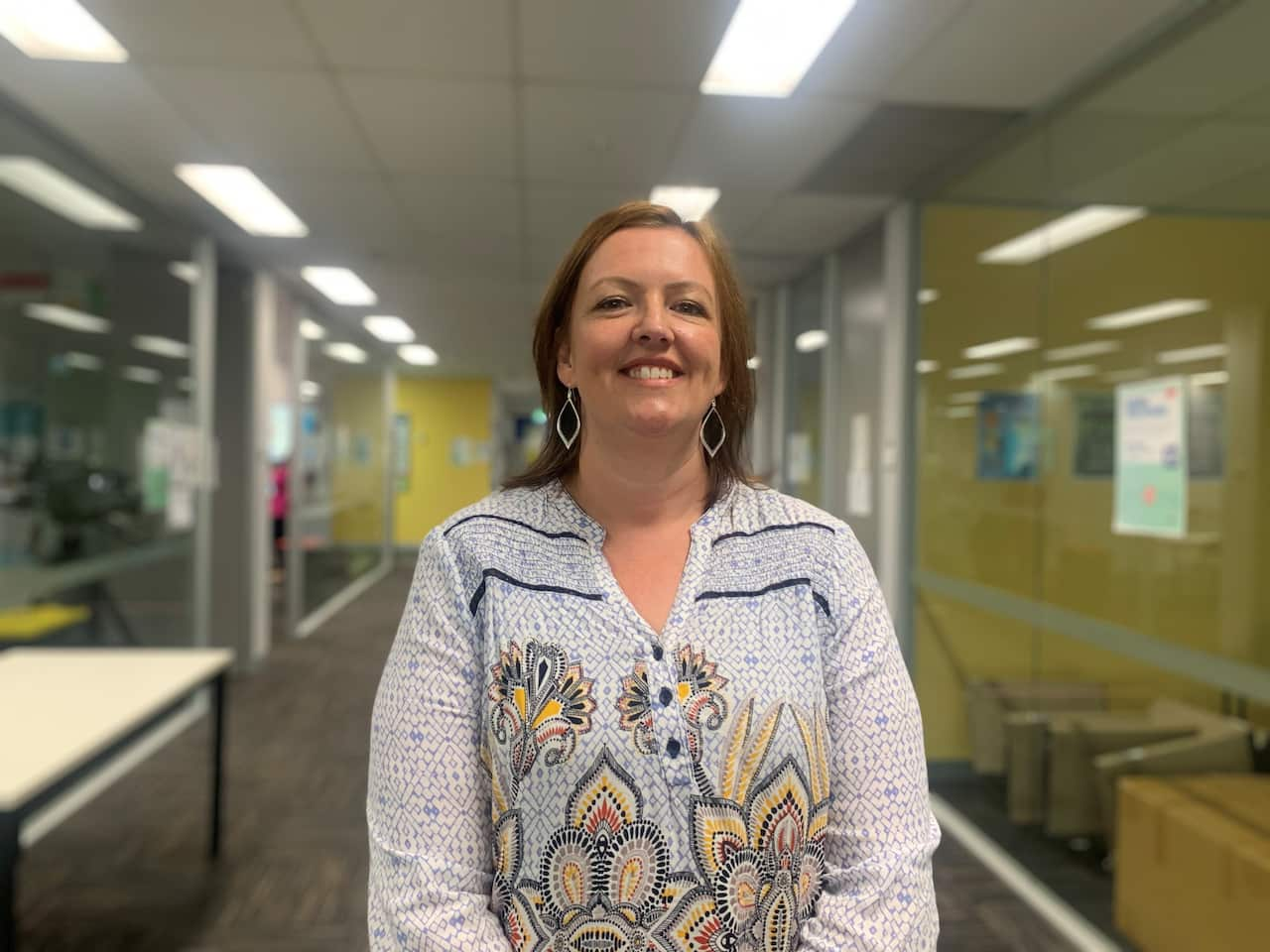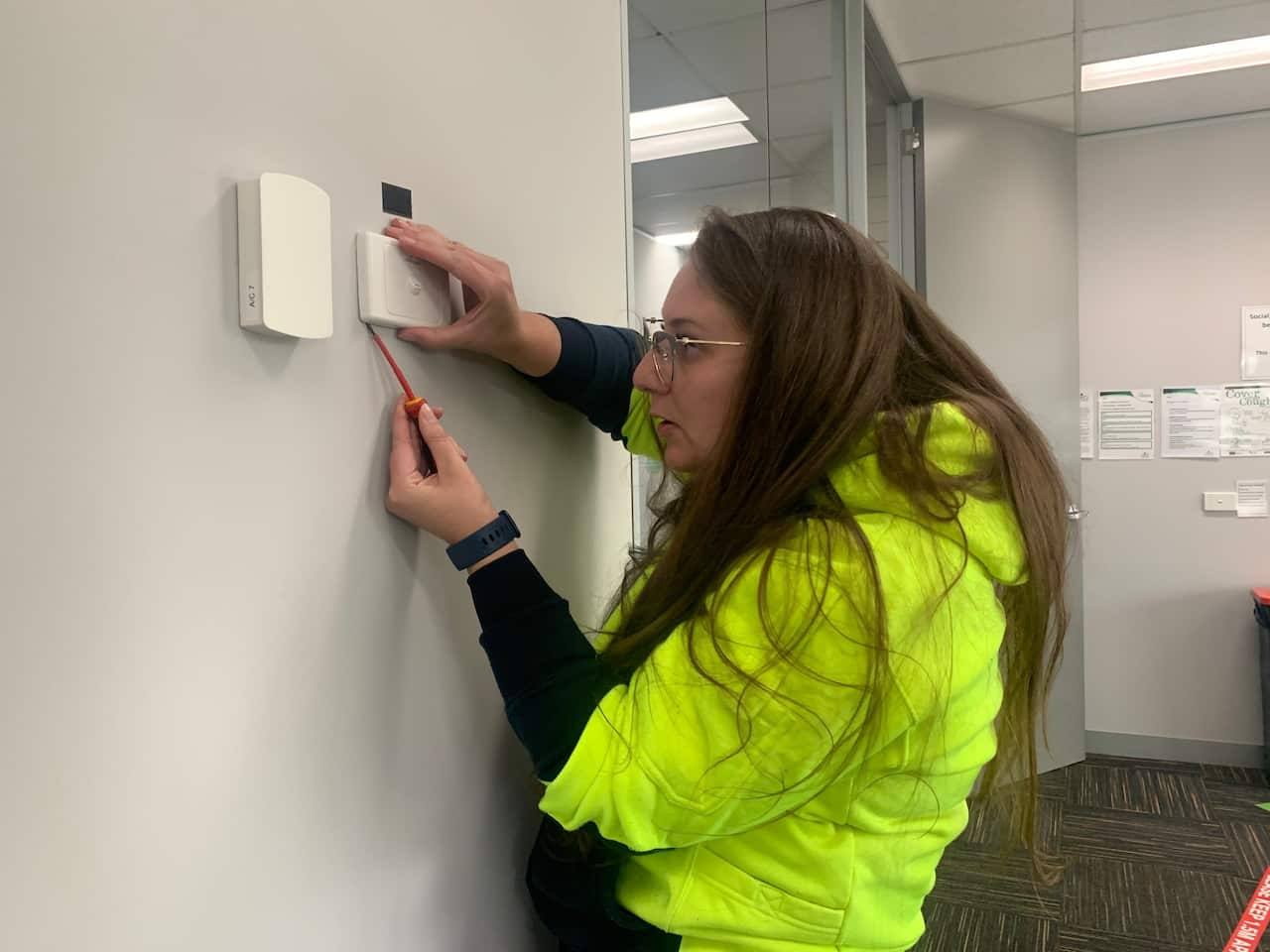When Miriam Sowter felt her passion for her hospitality job fading away, she took on the advice of a friend and considered a job in trades.
"It was somebody else's idea that planted into my brain and grew into a very successful tree," she told SBS News.
Miriam is now a third year electrical apprentice and says she has not looked back.
But as the only woman on her team, Miriam is a minority.
A pilot program being rolled out in the west Melbourne suburb of Wyndham hopes to reverse that trend, by attracting more women into the field - particularly those from migrant backgrounds who have been especially hard-hit by the pandemic.
Fiona McDonald from Trades Women Australia, who is running the pilot, said the idea was to run tailored programs to help migrant women get better access to permanent work.
"They were greater impacted compared to the other women we usually work with and we wanted tailored programs to help them out of these situations so they can gain access into something that's permanent, including things like annual leave and sick pay," she told SBS News.
Jacinta Stafford has worked closely with migrant communities as an employment coach for the past 17 years and said programs like this will help quash misconceptions about what job opportunities are available to women.
"There is an issue around knowing what is exactly out there as far as work goes,” she said.
"Everyone tends to think it's just childcare or hairdressing, they don't understand the gamut of job opportunities that are actually available to them".

Migrant women are still underrepresented when it comes to employment.
Ninety per cent of men who arrived in the last 10 years and found work are now on full-time contracts, compared to 63 per cent of recently arrived and employed women.
Female migrants also have a higher unemployment rate overall.
"It is very likely that migrant families will make the decision that men have better chances in the Australian job markets and choose to invest all the resources into men while women stay at home and do childcare," said Hyeseon Jeong, a research and policy officer for the Migrant Workers Centre.
Additional support services, like childcare, translated material and transportation to and from the training sessions will be provided to participants to encourage women from multicultural communities to join.

At the same time, monthly training sessions will be offered to provide a range of technical and educational knowledge to help women through the program and beyond.
"We will do hands-on activities, like learning how to manage the tools,” Ms McDonald said.
“We will also do a lot of educational things about the 65 different types of trades that are out there and also help people with their resumes.”
Participation of trainee women in trades industries has stayed at less than two per cent over the past 25 years.
It is hoped that this pilot program will help boost that number, while also helping migrant women transition smoothly into Australian life.
"The groups of women that I work with actually do the best when they work together as a team," Ms Stafford said.
"So often that support they get through the workplace from other women is imperative in supporting them into a healthy and happy community life."
Trades Women Australia hopes to expand the initiative nationally after a six-month trial, which is currently recruiting.

